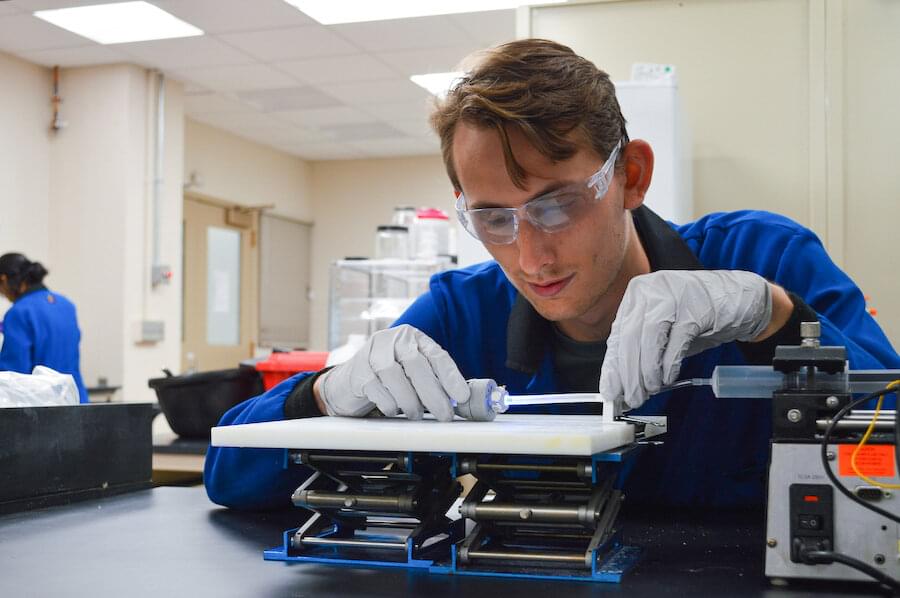An interdisciplinary team of University of Minnesota Twin Cities scientists and engineers has developed a first-of-its-kind, plant-inspired extrusion process that enables synthetic material growth. The new approach will allow researchers to build better soft robots that can navigate hard-to-reach places, complicated terrain, and potentially areas within the human body.
The paper is published in the Proceedings of the National Academy of Sciences (PNAS), a peer-reviewed, multidisciplinary, high-impact scientific journal.
“This is the first time these concepts have been fundamentally demonstrated,” said Chris Ellison, a lead author of the paper and professor in the University of Minnesota Twin Cities Department of Chemical Engineering and Materials Science. “Developing new ways of manufacturing are paramount for the competitiveness of our country and for bringing new products to people. On the robotic side, robots are being used more and more in dangerous, remote environments, and these are the kinds of areas where this work could have an impact.”
